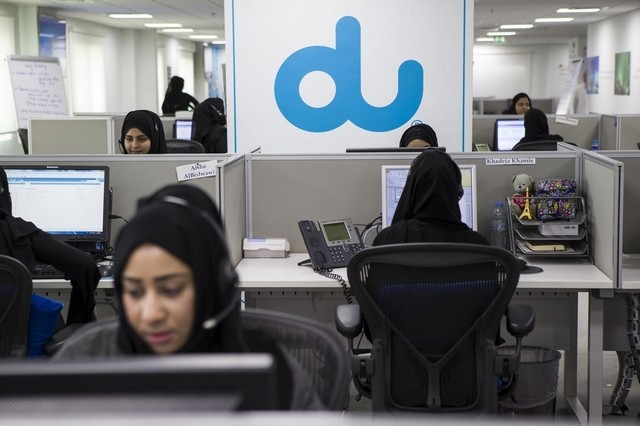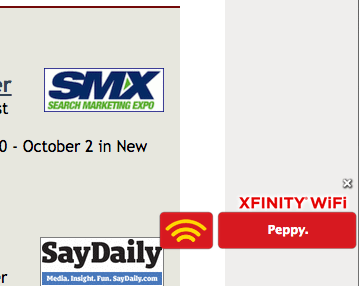
du’s call center is 91% female and 100% staffed by citizens of the UAE. (Photo: The National)
Broadband users across the United Arab Emirates will soon find their Internet connections upgraded to 1Gbps as the country transforms its broadband services to deliver world-class speeds without steep price increases.
ISP du announced this month it had successfully completed tests to upgrade its network to deliver 1,000Mbps service to its customers, delivering a faster data experience over a substantially improved bandwidth backbone.
“Offering 1Gbps speeds is yet another incredible triumph of our team’s efforts and a significant milestone in our progression towards offering unmatched user experience,” said Saleem AlBalooshi, executive vice president of network development and operations at du. “As always, this is designed around our customers and they stand to benefit from this initiative.”
Customers in the United Arab Emirates already enjoy substantially better telecommunication service at a lower cost compared to North America.
UAE mobile users already receive VoLTE 4G service, which allows customers to talk and browse the Internet simultaneously on a substantially upgraded LTE network. The ISP has offered wireless customers HD Voice — a better quality voice calling experience — at no extra charge since 2012. The company has also extended the technology to its older 3G mobile networks and supports HD quality landlines as well. This year, the company will deploy its LTE-A Carrier Aggregation technology to combine bandwidth available at different frequency bands to improve wireless speeds and reliability.
In April, the country introduced new regulatory policies requiring providers to sell access to their networks at reasonable wholesale prices, spurring competition and letting residents choose between different providers for the first time. Despite the open access rules, investment continues to pour into the UAE’s telecom networks for expansion and upgrades, even as customers see their bills decline.
[flv]http://www.phillipdampier.com/video/UAE Weekly Interview Featuring Osman Sultan CEO du 4-20-14.mp4[/flv]
UAE Weekly features du’s CEO Osman Sultan who explains how du is very different from ISPs in other countries, especially in the USA and Canada. Sultan explains du doesn’t use offshore call centers, doesn’t frustrate customers with constant rate increases and usage restrictions, offers nationwide Wi-Fi, and believes in using competition to please customers, not alienate them with tricks and traps. From Dubai CITY TV-7. (April 21, 2014) (21:39)


 Subscribe
Subscribe Dollar store broadband? It has arrived in the United Kingdom with this week’s introduction of bargain broadband access charged at just 99p a week – $1.60US or £4.29 ($6.90) per month for the first six months.
Dollar store broadband? It has arrived in the United Kingdom with this week’s introduction of bargain broadband access charged at just 99p a week – $1.60US or £4.29 ($6.90) per month for the first six months.

 Independent television in Great Britain
Independent television in Great Britain  John Malone’s Liberty Global is seen as a leading contender, already owning a 6.4% stake in ITV acquired from BSkyB for $824 million. Liberty Global and Discovery Networks have maintained close association and jointly bid $930 million to acquire All3Media, the production arm of reality shows like “Undercover Boss.”
John Malone’s Liberty Global is seen as a leading contender, already owning a 6.4% stake in ITV acquired from BSkyB for $824 million. Liberty Global and Discovery Networks have maintained close association and jointly bid $930 million to acquire All3Media, the production arm of reality shows like “Undercover Boss.”